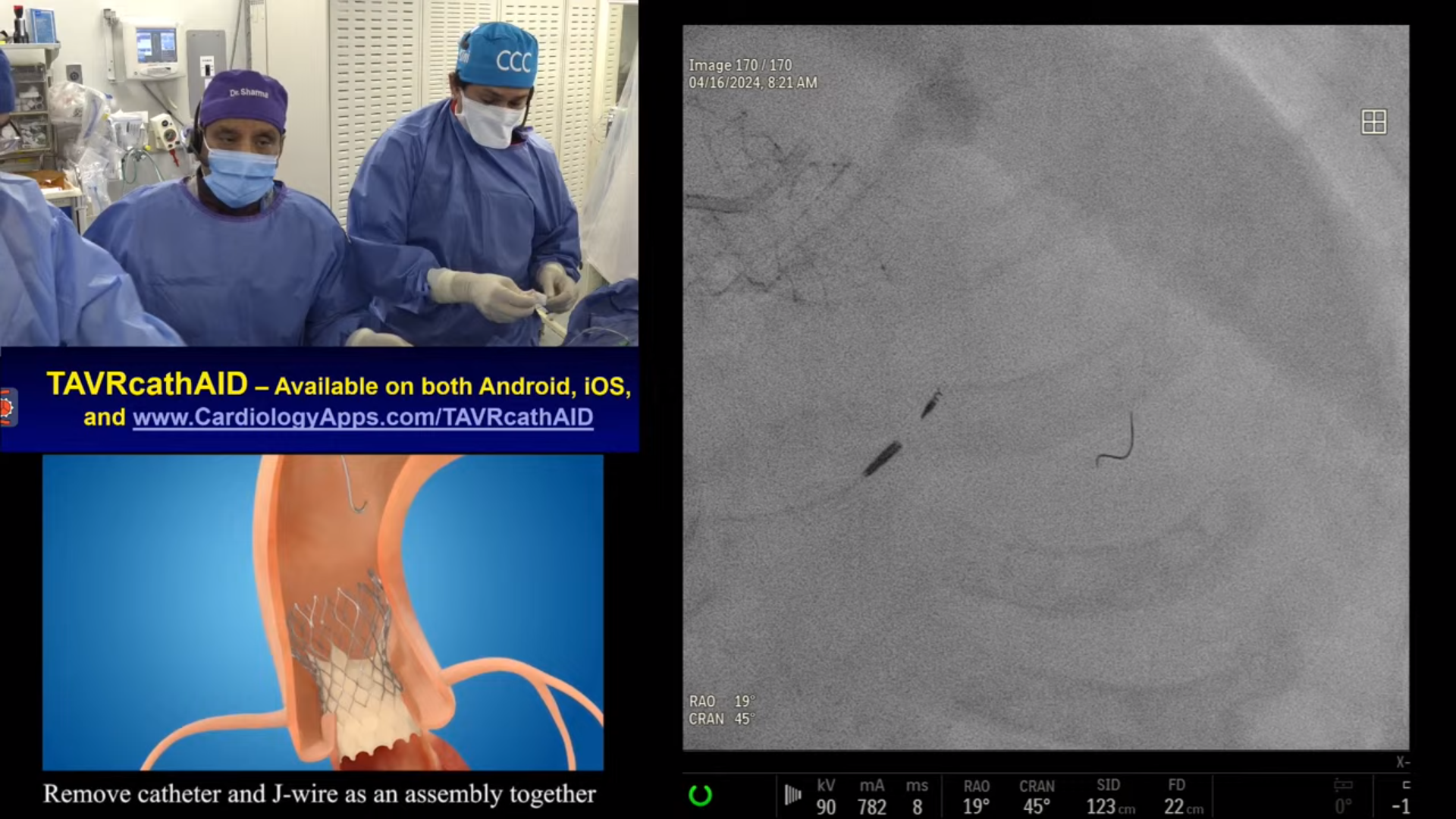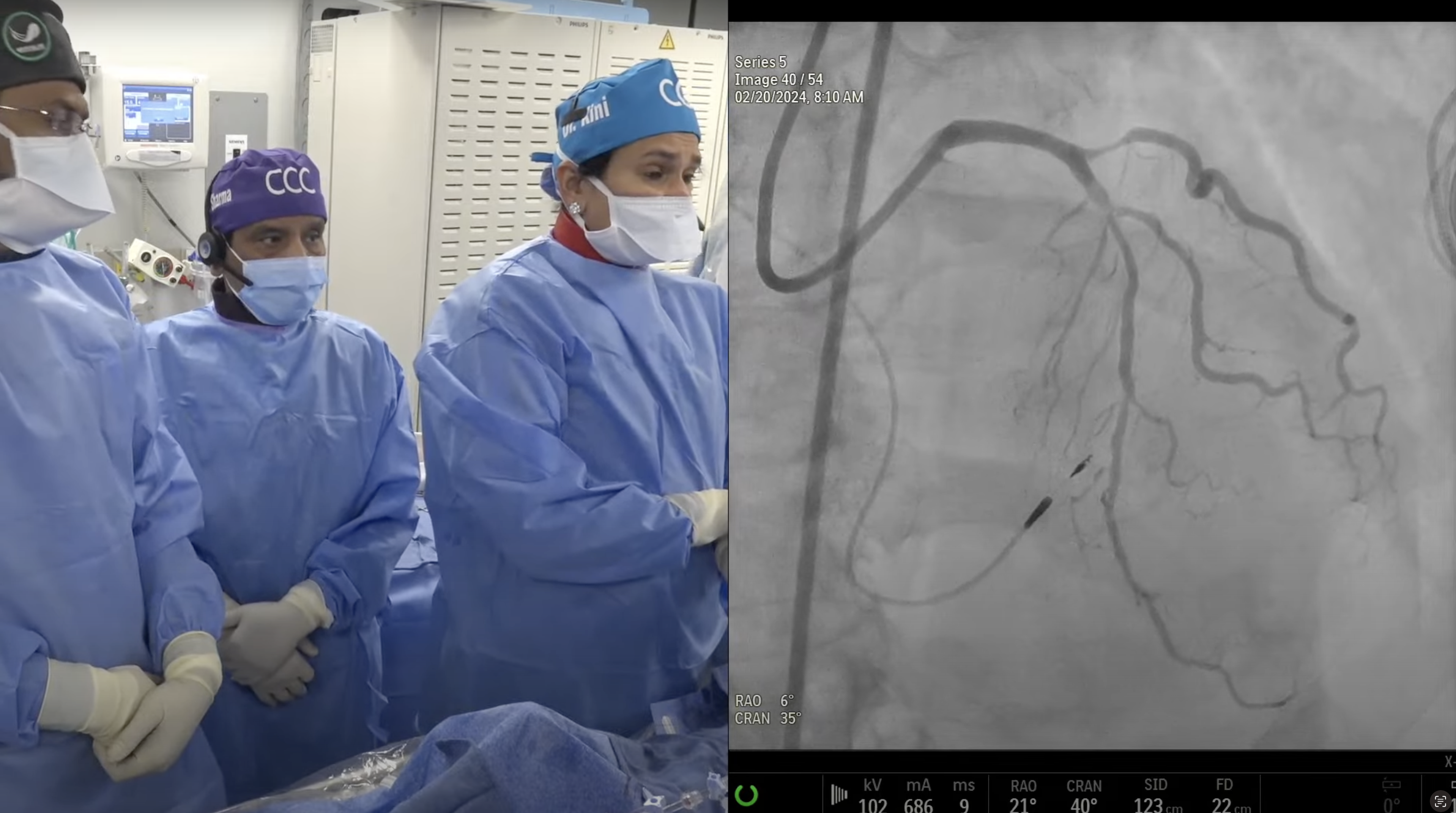45 year old male presented with new onset CCS Class IV angina and lateral ST-T changes. A Cardiac Cath on June 27, 2016 revealed 3V CAD: totally occluded proximal RCA, 90% mid LAD, 70% LCx-OM2 with normal systolic LV function; SYNTAX Score of 17. Patient underwent successful intervention of culprit mid LAD using Promus Premier DES. Patient continued on aggressive CAD risk factor modification and maximal medical therapy. Patient still has Class II angina and a stress MPI revealed moderate inferoposterior ischemia. Patient is now planned for PCI of RCA CTO via retrograde recanalization technique.
Moderator: Sameer Mehta, MD
Q&A
Q
Congratulations about the Top NYS Ranking. Do you think it is because of the hospital or because of the systems that you have created? Or both?
A.
To continue to remain on top for last 18 years is the main result of hard work, technical expertise and developing & implementing the guideline tested specific protocols in the cath lab. This is even more important when 25% of PCIs at Sinai are done by the voluntary interventionalists whose annual volume is between 30-50 PCIs per year. Mount Sinai Hospital has provided a great infrastructure support which has enabled us to place check and balances at various levels where NPs and interventional fellows play a major role in overall care of PCI pts.
Q
Is there also a ranking of Structural Heart Interventions?
A.
Presently their is no ranking of Structural heart interventions at present from the NY State; they only report the annual institutional volume of TAVR cases. We are second to Columbia in the NY State in the TAVR volume while we lead the NY State in the PCI volume.
Q
What do you personally think is more significant - top in volume or top in safety?
A.
Of course safety is the most important parameter of PCI performance but as you well know both safety and volume go hand & hand as higher volume drives better safety and quality as long as the infrastructure can support the operations.
Q
Of this massive PCI volume, what proportion do you feel are complex interventions?
A.
About 40-45% of our PCI cases are complex as defined by CTO, severe calcification, bifurcation and LM lesions.
Q
What proportion of your cases are International cases?
A.
International cases are still a small number around 3-4% only.
Q
How is the PCI volume at your sister facilities in NYC?
A.
All hospital including us have faced the decline in the PCI volume in last 4-5 years but many other sister hospitals have major decline. Our PCI volume has declined aggregate 10% in last 5 years while this number is close to 20% at many other NY hospitals.
Q
And their safety profile?
A.
We do lead in safety with reported 30 day risk adjusted mortality lower in most of the PCI categories. This has been consistent over last 18yrs since PCI outcomes are reported by the NY State. Yes few other NY hospitals do get safety ratings from time to time but not consistently.
Q
Do these Mount Sinai Hospital affiliates refer complex interventions to you?
A.
Yes we get some complex cases from our Sinai affiliates but majority comes from outside hospitals; largely from NJ.
Q
On an average, how many PCI procedures does an Interventional Fellow scrub in?
A.
We now do approx 4000 PCIs per year with 8 Interventional fellows, who individually do approx 500 cases each. Each interventional fellow also does approx 90 PTAs and approx 50 Structural heart interventional cases (BAV and TAVR).
Q
Do you feel that even more operators can achieve the very coveted Double Star recognition? Are you constantly guiding them?
A.
Yes I believe that many other interventionalists also can get the double star safety record but need to develop superior technical skills, take complex cases, pay attention to minute details and develop an effective infrastructure of pre and post PCI care to detect any trouble at the earliest such DAPT compliance and Eatly recognition of vascular and ischemic complications and their quick management.





